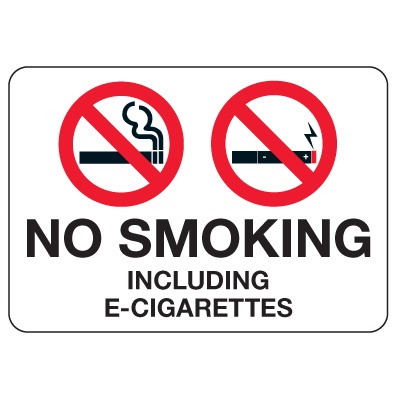Until recently, most parents were not as concerned about their teenager vaping as they would be if their child experimented with other drugs.
Informed Families Catalyst
What Parents Need to Know About Teen Vaping
Posted by Informed Families on September 28, 2019 at 9:00 AM
Topics: marijuana, prevention, teens, nicotine, e-cigarettes, juul, vaping
Summer Is A Good Time to Refocus On Prevention
Another busy school year is coming to a close and we are all looking forward to having some down time and reconnecting with family. The start of summer is a critical time to talk with your kids about risky behaviors. Teens and college students most often use substances for the first time during June or July, according to SAMHSA's National Survey on Drug Use and Health (NSDUH) data on adolescents – 2012 and NSDUH data on full-time college students – 2015.
Unfortunately it’s not as easy for parents to recognize that their child might be experimenting with alcohol or drugs. JUUL e-cigarettes that look like USB flash drives, flasks disguised as lotion containers, sunscreen or smart phone cases, and CBD gummies can be hidden in plain sight. These items can all be purchased online. Talk to your kids about the dangers of using drugs or alcohol and arm them with the knowledge they need to make healthy choices. If you need some talking points take a look at these 11 Tips For Talking To Your Kids About Drugs & Alcohol.
It might be hard to acknowledge if your child has a substance abuse problem. It’s also difficult to find help. Many parents often ask - what should I do if my child is dealing with an addiction or mental health issue? The good news is a newly proposed Comprehensive Addiction Resources Emergency (CARE) Act 2019 would help provide the infrastructure and community building that is are critical to getting them the care they need.
Peggy
Topics: President's Message, parenting, college students, teens, peer pressure, e-cigarettes, drug use, parents, alcohol use, summer, healthy kids, juul
AAP Warns of the Dangers of Binge Drinking in Adolescents
8/31/2015Despite recent declines, two out of every three students (66 percent) have consumed more than just a few sips of alcohol by the end of high school, and over a quarter have done so by eighth grade. In 2014, half of twelfth graders and one in nine eighth graders reported having been drunk at least once in their life.
In a new clinical report, " Binge Drinking," in the September 2015 Pediatrics (published online Aug. 31), the American Academy of Pediatrics (AAP) urges pediatricians and parents to discuss the dangers of alcohol use with children before they take their first sip.
Alcohol is the substance most frequently abused by children and adolescents in the United States, and its use is associated with the leading causes of death and serious injury at this age, including motor vehicle accidents, homicides, and suicides. Eighty percent of adolescents say their parents are the biggest influence on their decision to drink or not.
"We must approach drinking in children, particularly binge drinking, differently than we do in adults," said pediatrician Lorena Siqueira, MD, MSPH, FAAP, member of the AAP Committee on Substance Abuse and co-author of the clinical report.
"Given their lack of experience with alcohol and smaller bodies, children and adolescents can have serious consequences -- including death -- with their first episode of binge drinking," Dr. Siqueira said. "Studies have indicated that continued alcohol use during this growth period can interfere with important aspects of brain development that can lead to cognitive impairment, alcohol-induced brain damage and substance use disorders later in life. Because alcohol use is so common, it is necessary for pediatricians to screen every adolescent for alcohol use during office visits, and along with preventive messages, to help identify youth at risk for alcohol-related problems."
Drinking alcohol is associated with numerous adverse outcomes in underage drinkers, and binge drinking significantly increases these risks.
In adults, binge drinking is defined as consuming five or more alcoholic drinks in a two-hour period by men, or four or more drinks by women. Because teens typically weigh less than adults, they are likely to reach an unsafe blood alcohol concentration more quickly, and lower cutoff points have been proposed. For girls ages 9 to 17, three or more drinks in a two-hour period is considered binge drinking. For boys ages 9 to 13, the cutoff is three or more drinks; for boys ages 14 to 15 it's four or more drinks; and for boys ages 16 to 17, it's five or more drinks.
During high school, drinking rates increase dramatically among teens. Between 36 percent and 50 percent of high school students drink alcohol, and 28 percent to 60 percent report binge drinking. Among high school students, boys are more likely than girls to participate in binge drinking, and is far more common among white boys than among blacks or Hispanics.
The new 2015 clinical report also found:
- Among youth who drink, the proportion who drink heavily is higher than among adult drinkers.
- Children start to think positively about alcohol between 9 and 13 years of age.
- Binge drinking can be associated with early sexual activity and higher rates of teen pregnancy.
- A third of all fatal auto crashes involving alcohol happen among 15- to 20-year-olds.
- Encouraging parents to talk with their children about alcohol use early is very important.
- Programs and resources are available on how to use teachable moments to discuss alcohol use with children.
E-Cigarettes have emerged over the past decade and researchers in the early stage of investigating what the health effects are for people who use these products or who are exposed to the aerosol (vapor) secondhand.
E-Cigarettes are designed to deliver nicotine without the other chemicals produced by burning tobacco leaves. Puffing on the mouthpiece of the cartridge activates a battery-powered inhalation device (called a vaporizer). The vaporizer heats the liquid inside the cartridge which contains nicotine, flavors, and other chemicals. The heated liquid turns into an aerosol (vapor) which the user inhales—referred to as “vaping.”
There are conflicting studies about whether or not e-cigarettes help smokers to quit. For tobacco cigarette smokers, e-cigarettes may be a safer alternative, if the goal is not to quit nicotine all together.
Topics: nida, nicotine, e-cigarettes, tobacco



